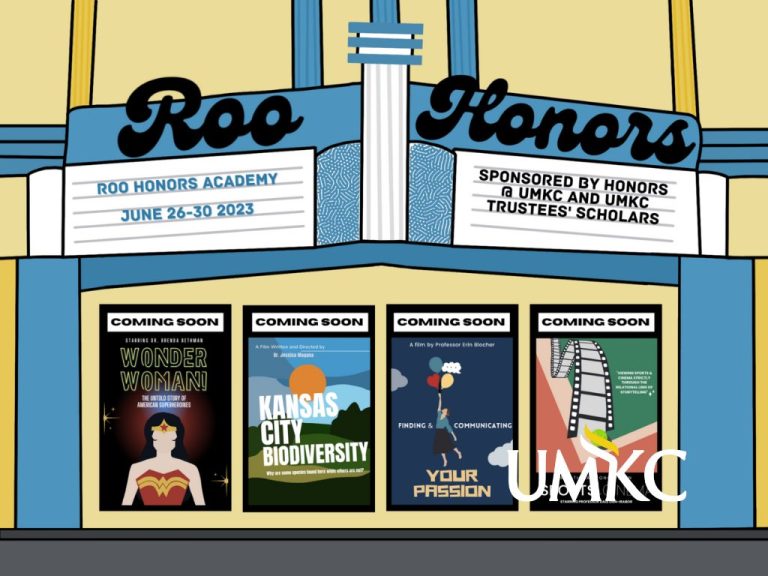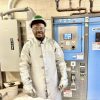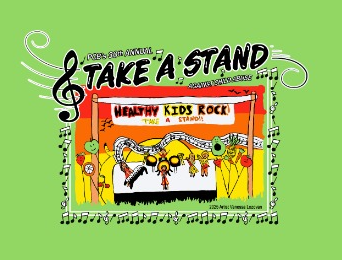Roos Honors Academy- 2023 will offer non-credit classes on finding your inner superhero, plants and animals in the KC region, communication, and sports in society.
https://youtu.be/F29Oe8pZJiw
Session 1: “Wonder Women! The Untold Story of American Superheroines”
- Using the film directed by Kristy Guevara-Flanagan as its starting point, this course will explore the history of Wonder Woman, movements for women’s rights in the U.S., media representations of women and media literacy, women in power, and will conclude with a module on empowerment and finding your inner superhero. We will discuss the persistent appeal of Wonder Woman and the way her popularity has both endured and evolved over time.
Session 1: Kansas City Biodiversity
- Why are some species found here while others are not? We will use on-campus and near-campus resources to explore the biodiversity of our local area, discuss changes over geological time, and investigate how and why this biodiversity is currently changing.
Session 2: Finding and Communicating your Passion
- What are you most passionate about? How can you align your career goals with the things that really excite you? How can you communicate your passion to others and enlist their support? In this class, you will learn practical ways to design your life around your most authentic interests and communicate your passion to others. Our class will talk with people who get to live their passion every day in unique and interesting jobs and learn from their journeys. You will work with a team of UMKC experts to uncover your strengths, build a personal brand that resonates, maximize your network, and think like an entrepreneur to pitch your ideas to others. This course will help you articulate what you are most passionate about and give you the tools to be a powerful ambassador for your vision.
Session 2: Sports, Cinema, and Society
- How do sports, and their portrayal in pop culture, affect how we view the world? In this course, we will explore the different ways that sports are portrayed in media, and how that media can act as a vehicle for societal growth and change. Using movies and TV shows from the 1980s, 1990s, and early 2000s, we’ll examine the different roles sports play in our society.
Students will need to provide their own transportation to and from the campus. Lunch will be provided throughout the week. Students who successfully complete each course will receive a Recognition of Achievement certificate from the UMKC Honors Program and a Roo Honors Academy T-shirt.
This selective program is open to thirty students in grades 9-12. Tuition is $275; children of UMKC employees are eligible for a $20 discount. Need-based scholarships may be available. For more information about scholarships or other questions about the Academy, please contact Margo Gamache, Honors Program Student Services Director.
Participating students also have the option of spending the night in the UMKC dorms for the whole week. This option comes with an additional cost of $295 ($205 for room, $50 for dinners, and $40 for breakfasts). Students who are interested in this option can indicate their interest on the application.
Click here to apply for Roo Honors Academy 2023. Applications are due April 15.








